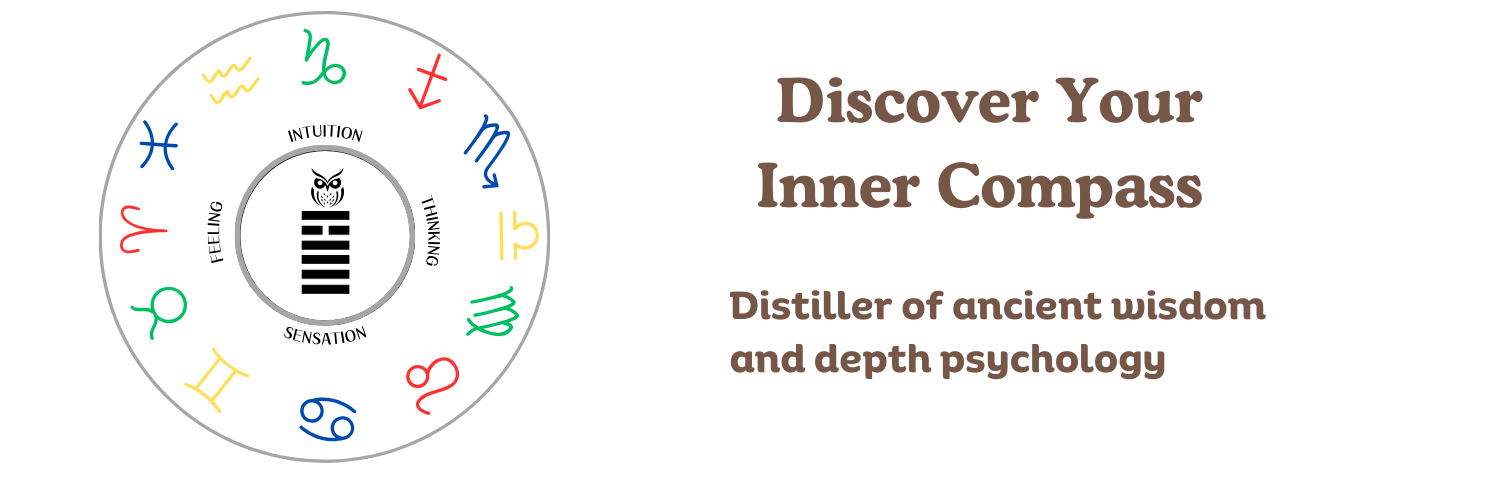So here we are with conflict in the aftermath of last week’s adversity.
In Hexagram 6: Conflict from the I Ching, which is in play for this next week of Virgo,* heaven and water are moving in opposite directions. We had a similar dynamic going on back during Gemini season, when earth and heaven weren’t aligned. “As above, so below” isn’t happening.
There was recently a lot going on in Virgo. There was the New Moon last week, and Mercury just stationed direct, meaning the retrograde is over. I don’t know about you, but I was feeling low energy late last week as Mercury came to a standstill during the end of the retrograde. Maybe the conflict in Hexagram 6 will help me wake up!
Regarding conflict, this hexagram reminds us that we must face the conflict within if we want to be able to conquer the danger from without.
As Jung said, “And the man at peace with himself, who accepts himself, contributes an infinitesimal amount to the good of the universe. Attend to your private and personal conflicts and you will be reducing by one millionth millionth the world conflict.“
Steve Myers, the author of one of my favorite typology books, says: “The more we recognise the conflict as being within ourselves, the better we are able to deal with any actual conflict there may be in the world. This can in some instances lead to more conflict, at a conscious level. By learning to engage in an inner dialectic, we can recover the lost art of disagreement that not only develops ourselves but encourages more constructive debates in society- ‘a sane and normal society is one in which people habitually disagree though agreement is equally important.’
That all sounds great, but how best to attend to your personal conflicts? An “inner dialectic” immediately brings to mind the parts work technique of Internal Family Systems and the Jungian practice and active imagination, where one dialogues with inner dream figures. It’s all the more motivating to know that this inner work can help us in real life dialogue with people.
From a personality typology perspective, John Beebe’s 8 function model shows us our inner conflicts. The “opposing personality” function is the opposite of our “hero” – the strongest, dominant function – and is a source of inner conflict. Also, people who have your opposing function as their hero function are people with whom you might more easily disagree. This knowledge makes it easier to navigate difficult encounters with others.
Plus there is the inferior function – “life’s great problem” as Marie-Louise von Franz said. The type of person we can’t stand most often resembles our inferior function. Then there is the “senex” shadow function, which can lash out at others; it is opposite our parent function and therefore is similar to a critical parent.
From an astrology perspective, the location of Mars in your natal chart, and aspects other planets make to Mars, give you some insight about how you handle conflict.
One of my favorite takes on Mars is from Howard Sasportas: “If you are chronically ill or depressed, I would encourage you to examine closely the house Mars is placed in your chart. We don’t normally think of Mars as a significator for illness or depression, but these states can be caused by an “unused” Mars. Perhaps becoming more active, expressive or assertive in that domain will unblock you, improving your health and vitality, and get you going again.”
If we get going again, then we can flip the script so that “as below, so above.”
___
Schedule an Astrology Consultation | Subscribe to the Monthly Depth Books Newsletter | Contact Me
References:
Myers-Briggs Typology vs. Jungian Individuation by Steve Myers
C.G. Jung Speaking by C.G. Jung
The Inner Planets: Building Blocks of Inner Reality by Liz Greene and Howard Sasportas
*The 64 hexagrams of the I Ching, an ancient Chinese text, are arranged along the ecliptic (the celestial equator) in Human Design. In astrology there are 12 zodiac signs along the ecliptic, so there are 5.3 hexagrams per zodiac sign. I’m contemplating these hexagrams as a way to engage with astrology, the I Ching, and Jungian psychology.
